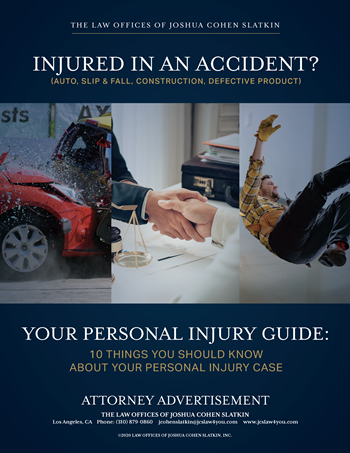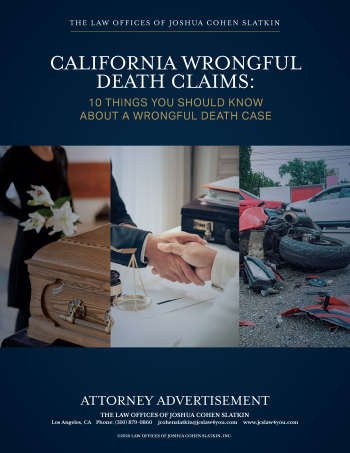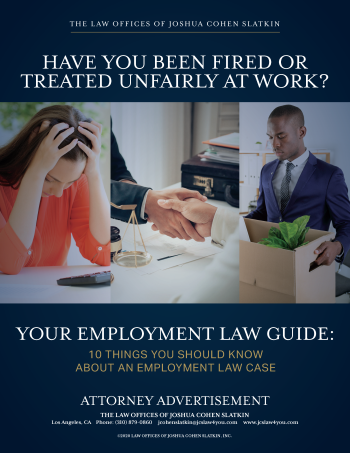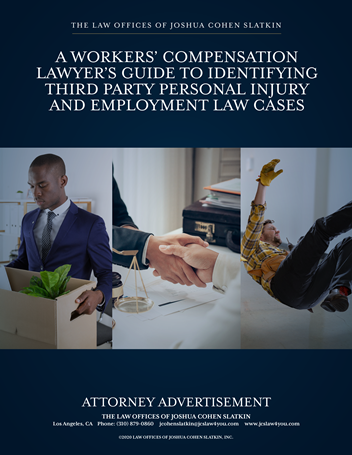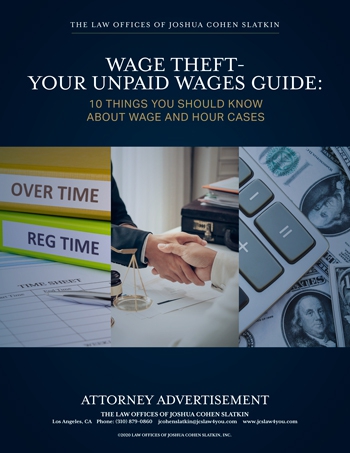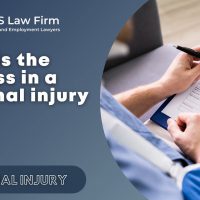Accidents related to defective products include:
- Serious car wrecks which caused injury due to a defective design or manufacturing defect
- Complications caused by defective medical devices, tools or toys
- Malfunctions of consumer electronics and appliances
- Defective medications or medical devices
- and any other product used by a consumer
If you have been injured because of a product defect or malfunction, you may not only file a claim against the manufacturer to recover compensation for your damages but against every party responsible for the production and chain of distribution of the defective product, including the store where you purchased it.
JCS Law Firm helps injured Californians hold manufacturers and related entities responsible for their dangerous products. To schedule a free case evaluation, contact our product liability lawyer in Los Angeles today.
How to Tell If a Defective Product Caused Your Injuries
In many product liability cases, it is obvious that the product is defective and responsible for causing injuries. For example, a hairdryer that sparks and burns the user is a clear case of a defective product.
In other cases, it is less clear whether a product was defective and responsible for an accident, illness, or death. For example, after most car wrecks, the drivers and insurance companies blame one of the drivers. But in some cases, inadequate brakes, engine malfunctions, inadequate safety devices like airbags or seat belts and other mechanical defects may have caused or contributed to the accident or injury.
A product liability claim must establish that the product was defective and caused injuries, no matter how obvious it may seem. Our experienced product liability team may secure expert witness testimony, such as automobile experts, medical device experts, or engineers to prove that the product was defective and caused the accident and/or contributed to your injuries.
Types of Product Defects That Can Injure Consumers
Product manufacturers are liable for any defect that leads to injuries and damages. Common types of defects that may cause injuries include:
- Design defects: If product designers, such as engineers or user-experience experts fail to identify and remedy a defect in the design, the result may be a defective product that puts consumers at risk. For example, the National Highway Traffic Safety Administration identified that exploding airbags produced by Takata posed a danger to drivers from the ammonium nitrate-based propellants used without a chemical drying agent. This failure in design can lead the airbags to explode and send shrapnel throughout the vehicle causing serious injury to the driver and passengers.
- Manufacturing defects: A defect in the manufacturing process may include inadequate raw materials or mistakes during assembly. A systemic problem in the manufacturing process might affect an entire product line, while a temporary problem might affect a limited group of items produced between certain dates or at certain locations.
- Failure to warn: Consumer protection laws require companies to put usage instructions and warning labels on products that could be dangerous and cannot be made safer through a different design. Sometimes the manufacturer fails to adequately warn the consumer of the inherent dangers of their products, and we must establish that had there been an adequate warning, the personal injury victim would have heeded that warning and not have been injured. This establishes causation; that is, had there been an adequate warning, the consumer would not have used the product in such a manner that caused the injury. For example, certain power tools are inherently dangerous. Often, manufacturers and other responsible parties will claim that the injured person misused the product, or modified the product to make it unsafe, and/or used it in some dangerous manner and the failure to warn did not cause any injury.
Proving a Manufacturer’s Liability for a Defective Product
Victims of defective products may pursue three legal courses of action to hold manufacturers responsible for a product-related accident: negligence, strict liability, and breach of warranty.
Get Help With Your SoCal Product Liability Claim
Product manufacturers and corporations have access to their own legal teams and industry experts. Make sure you have your own legal representation to protect your interests to protect your rights to compensation as an injured consumer.
At JCS Law Firm, we can help you identify the responsible parties, collect evidence, and build your case under the appropriate theory of product liability. Complete our contact form or call our Los Angeles office today at (833) JCS-FIRM (527-3476) to schedule your free consultation.
Negligence
Consumers can hold manufacturers liable for their injuries if they can prove the manufacturer acted negligently. To do so, the consumer must prove that the manufacturer breached its duty to manufacture safe products. This might involve a failure to conduct adequate safety testing prior to putting a product on the market. Negligence can also be claimed when the company releases a product with inherent design or manufacturing defects, which can injure consumers.
Strict Liability
Unlike many other personal injury cases, claimants pursuing a product liability claim may not have to prove negligence. To hold a manufacturer liable under strict liability laws, claimants need only prove these five things:
- The product was dangerous or defective when it left the manufacturer.
- The claimant did not alter the product.
- The claimant used the product in the intended manner.
- The defective product caused the claimant’s injury.
- The claimant suffered damages.
Claimants may establish strict liability by proving that a product lacked appropriate safety instructions or contained a design defect. The defect needs to be directly connected to the injuries.
Breach of Warranty
A manufacturer might breach its warranty if a product does not perform as the manufacturer claimed. There are two potential breaches of warranty:
- Breach of express warranty: A breach of express warranty occurs when a manufacturer makes a claim (either in writing or verbally) that is untrue. For example, if a manufacturer labels a toy as safe for children under three, but that toy contains small parts that can cause a child to choke and die, the manufacturer may be liable on the basis that it breached its express warranty.
- Breach of implied warranty: A breach of implied warranty occurs when a product does not work in the manner that any reasonable person would expect it to function. For example, if you purchase new brakes and, despite the mechanic’s correct installation, the brakes fail to work properly, the manufacturer may be liable for the defective brakes.
Potentially Responsible Parties Other Than the Manufacturer
Depending on the circumstances, parties other than the manufacturer of the defective product may also be held accountable for your injuries. Retail sellers may be liable for defective products. Other parties that may be liable for a defective product include:
- Designers
- Parts manufacturers
- Manufacturers that assemble the product
- Distributors
- Retail stores selling the product
- Sellers of the product components, including suppliers of raw materials
- Advertisers
When filing any personal injury claim, it is important to hold as many parties responsible as possible. We closely examine the details of the accident to evaluate all the causes and contributing factors and thus identify every responsible entity.
What You Can Do to Help Your Product Liability Claim
If you suffered injuries due to a dangerous product, the best thing you can do to protect your rights is to save the defective product and all its packaging and instructions, including the receipt that you have from your purchase of the product.
If you were in a car accident and your car is being towed from the scene, make sure you know where your car is located Write down the name of the towing company, the phone number, and the location to which they are taking your vehicle. You should hire a lawyer as soon as possible so the lawyer can notify all potentially responsible parties to preserve certain evidence that contributed to your injury and start investigating your case to ensure you prevail in a product liability case.
Request our free e-book, Your Personal Injury Guide: 10 Things You Should Know About Your Personal Injury Case, to learn more about your accident case.
Here are a few other things you can do to protect your claim:
- Save the proof of purchase or sale receipts that prove that you bought the product
- Save all documents (receipts, invoices, etc.) related to any repairs you have made to the product
- Save all maintenance records for the product (This is especially relevant to issues with vehicles.)
- Save all bills and receipts for accident-related expenses
- Document the time you miss from work
- Document your injures with photos and videos
- Take photographs of the defective product and your injuries
- Speak with a lawyer as soon as possible

